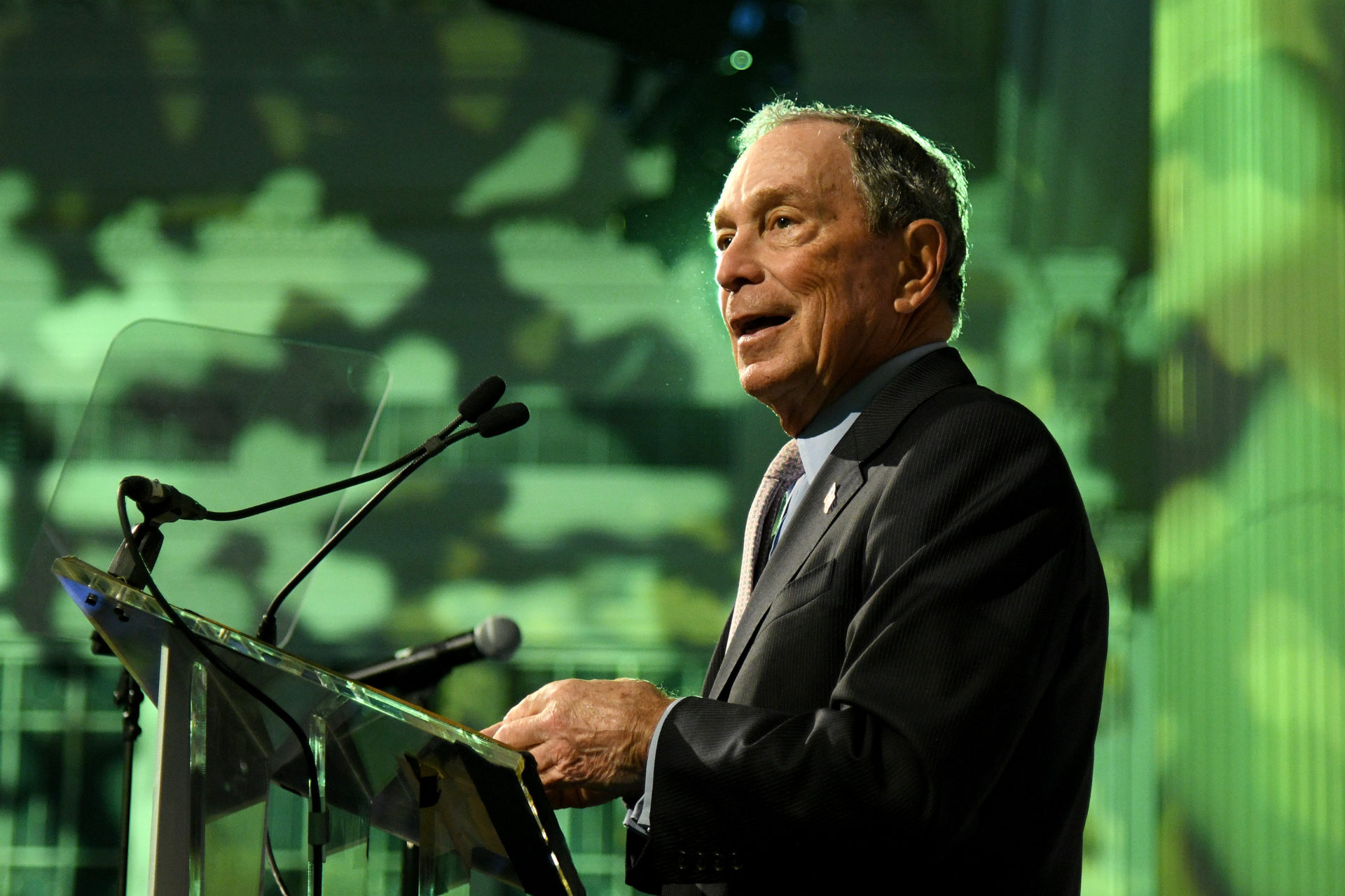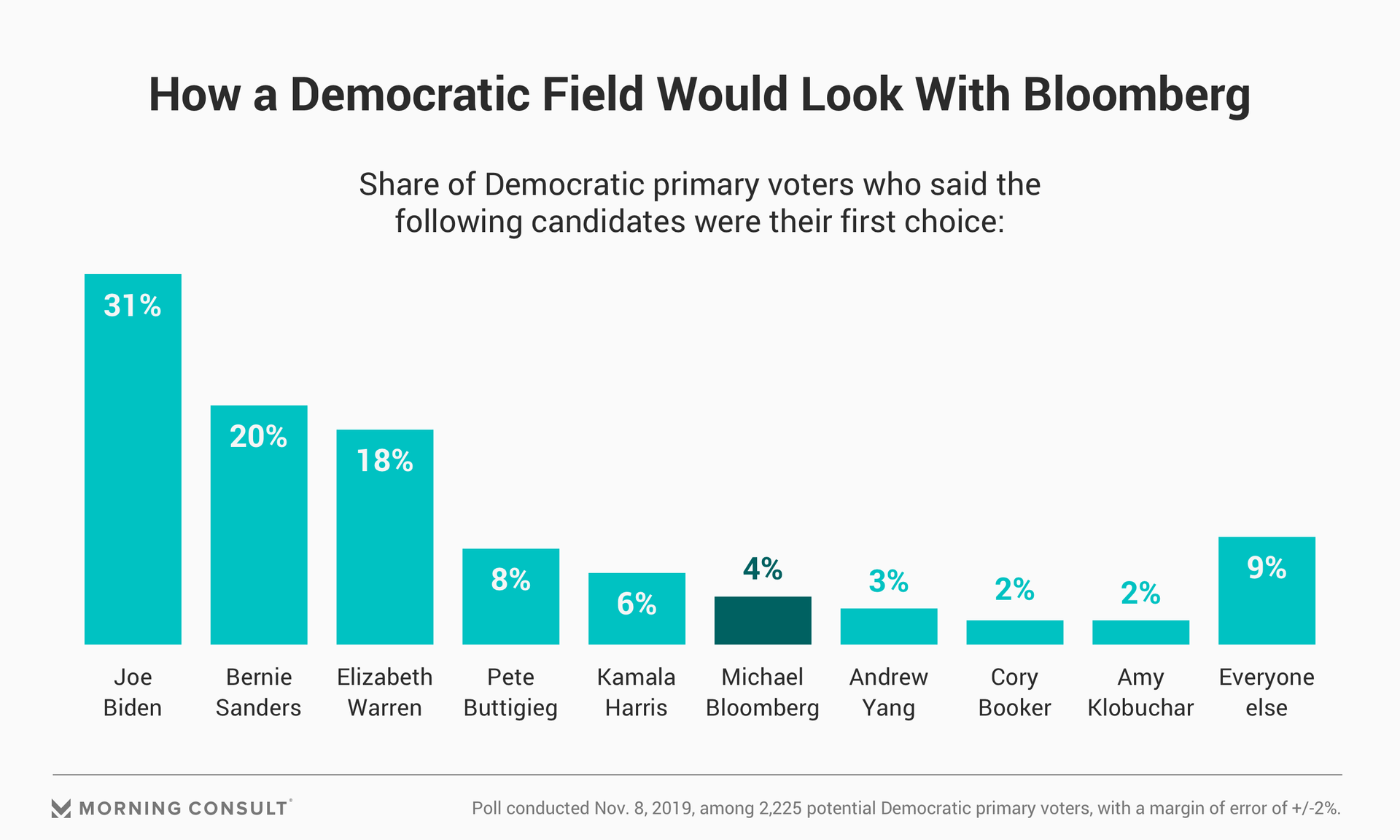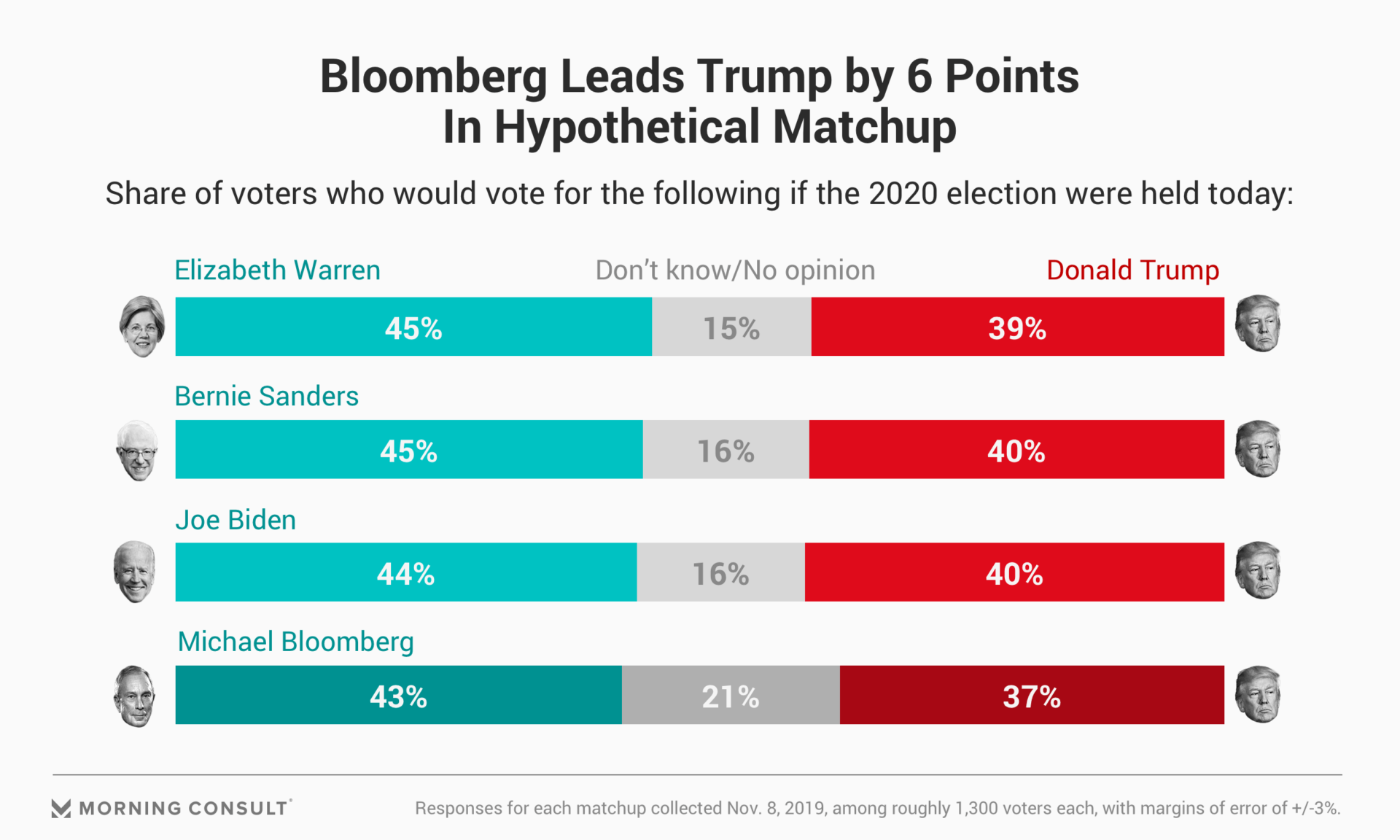Bloomberg Is Top Choice for 4% of Democratic Primary Voters

Key Takeaways
Bloomberg fares about as well as Warren, Sanders and Biden in hypothetical matchup against Trump.
25% of Democratic primary voters express unfavorable views of the billionaire, higher than any of the 15 candidates currently in the race.
A sliver of the Democratic electorate is ready for the presidential candidacy of former New York City Mayor Michael Bloomberg, according to a new Morning Consult poll, which found him to be as competitive as the party’s current top candidates against President Donald Trump in a hypothetical matchup.
According to the Nov. 8 poll, 4 percent of Democratic primary voters said the billionaire and former Republican would be their first choice for the party’s nomination to take on Trump next year -- placing him above 10 candidates currently in the race.

Bloomberg’s initial entrance would do little to disrupt the current state of play, according to the national survey of 2,225 registered voters who indicated they may vote in the Democratic primary or caucus in their state, which had a margin of error of 2 percentage points. At 31 percent, former Vice President Joe Biden held his spot as the race’s front-runner, while Sen. Bernie Sanders (I-Vt.) and Sen. Elizabeth Warren (D-Mass.), with 20 percent and 18 percent, respectively, continue to vie for second.
Bloomberg had initially ruled out a run for the Democratic nomination, but on Friday filed to be on the party’s primary ballot in Alabama, an initial step that would allow him to compete for one of 2020’s “Super Tuesday” states if he does enter the race.
As reports emerged Thursday that Bloomberg was reconsidering his decision not to run, adviser Howard Wolfson said on Twitter that the former New York City mayor “is increasingly concerned that the current field of candidates is not well positioned” to beat Trump.

The poll found that among voters overall, Bloomberg fares about as well as Warren, Sanders and Biden when matched up against Trump. Forty-three percent of voters nationwide said they would support Bloomberg in a hypothetical election, while 37 percent said they’d vote for the incumbent Republican, a 6-point advantage that matches Warren’s margin over Trump. But, 21 percent of voters said they were undecided, a larger share than in the other general-election matchups. The head-to-head matchups have a 3-point margin of error.
If he were to run, Bloomberg would enter the 2020 Democratic contest with higher name recognition among the party’s electorate than 11 current contenders, including fellow billionaire Tom Steyer of California. But Bloomberg does have baggage, with a quarter of likely Democratic primary voters expressing unfavorable views of him -- higher than any of the 15 candidates currently in the race.
Bloomberg’s net favorability -- the share of voters who approve of him minus those who disapprove -- is worst among the party’s youngest voters (ages 18-29) and those who identify as independents, while it’s best among the oldest Democratic primary voters (ages 65 and older) and those who say they’re conservative, who make up a small share of the overall Democratic party.
Eli Yokley is Morning Consult’s U.S. politics analyst. Eli joined Morning Consult in 2016 from Roll Call, where he reported on House and Senate campaigns after five years of covering state-level politics in the Show Me State while studying at the University of Missouri in Columbia, including contributions to The New York Times, Politico and The Daily Beast. Follow him on Twitter @eyokley. Interested in connecting with Eli to discuss his analysis or for a media engagement or speaking opportunity? Email [email protected].